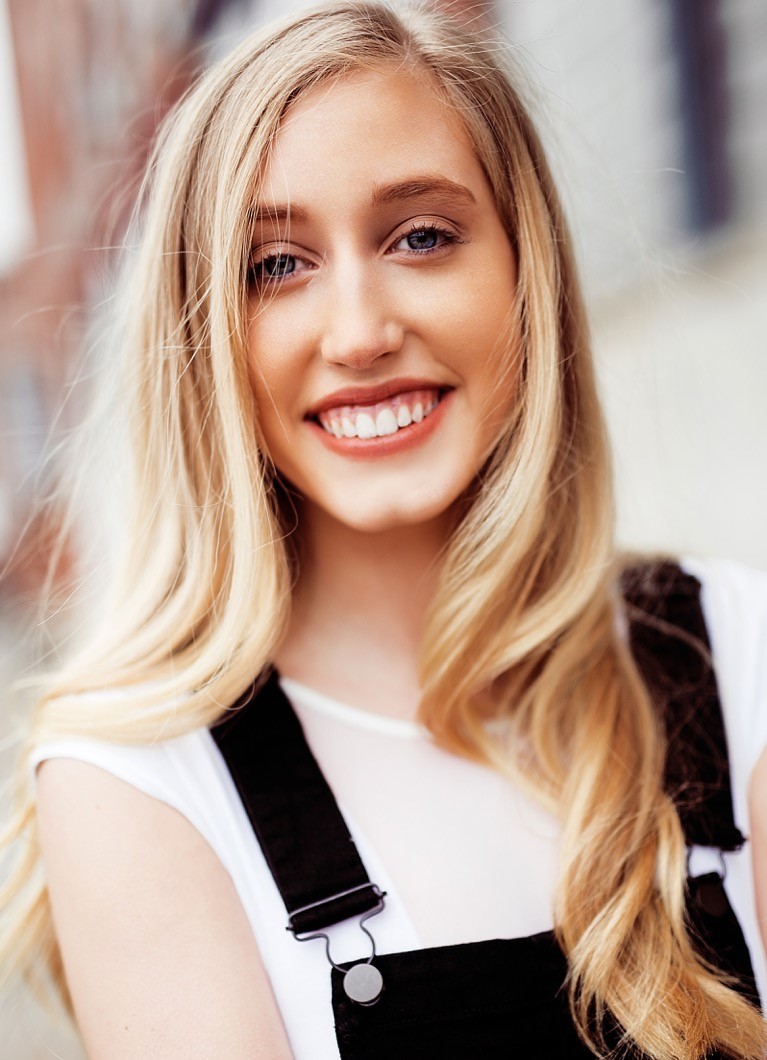Is Your Child in Your Blind Spot?

I know a lot about ADHD. That might sound like a pretty cocky thing to say, but bear with me.
I'm an adult thriving with ADHD. I am a Mom to 5 kids (2 boys with ADHD!), the leader & founder of an award winning CHADD Chapter, a trained Parent 2 Parent teacher, and a credentialed ADHD coach.
Factor in my life experience and a whole lot of online research time, and you would probably agree that I do, indeed, know a lot about ADHD.
Hiding in Plain Sight
So, when my beautiful, brilliant & successful teenage daughter told me that she was having trouble staying focused in class, you would probably expect it to be a no-brainer. That I would sagely nod, give her Dr. Thomas E. Brown's ADHD evaluation for adolescents, quickly scan the answers, and then celebrate that she, too, has the family gift!
But you would be wrong.
A few months later, when she began struggling with social anxiety, extreme depression and mind-blowing mood swings, it would make sense that at least one of the medical & mental health professionals we consulted would also consider ADHD, right? Because of family history (Mom, 2 brothers, maternal aunt, maternal uncle, to name a few!?), that would make sense, right?
Wrong again.
And a few months after that, as she tried anti-depressant after anti-depressant, sat through more hours of therapy in a week than she did in school, and scared herself again and again with a shocking inability to control risk-taking impulses, you'd think at some point I would say, ‘Do you think it might be ADHD?'
But I didn't.
Knowledge did not equal power or answers when it came to diagnosing my daughter's ADHD. Knowledge did not even spur me to ask the question. Not once.
Article continues below...
Treatment for your Child's ADHD
Download a free tip sheet "Recommended Treatment for ADHD: Medication & Behavior Management" for what's really recommended for your child or teen.
Blind Spots
She was in my blind spot.
Everyone has blind spots. At work or at home, we all have things that we just don't recognize as the truth. Sometimes we are too close to a person or situation to see what's really happening. On the flip side, sometimes we see exactly what's happening, but we desperately want to hide that reality, even from ourselves.
These blind spots can be pretty ironic. Like the doctor who doesn't notice that he has a serious medical condition. The friend who talks about herself all the time but is confused when people fade from her social circle. The marriage counselor whose own partnership is falling apart because she's too busy helping other couples heal their relationships.
Blind spots can be painfully obvious to those on the outside looking in, but potentially devastating to those in the thick of it.
Rationalizations
When it came to diagnosing my daughter, I had long-since talked myself out of the ADHD possibility. After all, I already had 2 kids with the ADHD diagnosis – wouldn't 3 kids with ADHD defy the odds?
Plus, she didn't have any symptoms like her brothers. She was (and is!) a well-organized, young lady. She's a great student & she has a solid social circle. She didn't ‘look' like she had ADHD. But she does.
And my inability to ‘see' her literally almost cost us her life.

I'm happy to report that with therapy & medication, our daughter is thriving once again. She's back to being a straight-A student, eagerly engaging in family life and expanding her circle of close friends. She exudes enthusiasm – something that had been missing for a long time.
My husband and I are happily stunned by how quickly the correct treatment combination turned things around for the better. It was touch-and-go there for a while, and it was terrifying.
Looking for What You Don't Want to See
So, how do you ‘look' for something you don't even know you're missing?
The fabulous Martha Beck offers this:
“You already know what's in your blind spot; it's just that looking at it makes you extremely uncomfortable. Only by being very gentle with yourself will you become able to tolerate more awareness. So as kindly as you can, ask yourself the following questions:
- What am I afraid to know?
- What's the one thing I least want to accept?
- What do I sense without knowing?”
On some level I think I knew that my daughter had ADHD; I just didn't want it to be true. Girls with ADHD are at high risk for all kinds of terrifying consequences. Like any parent, I wanted to shield my baby girl from that pain. But turning a ‘blind eye' to the problem clearly wasn't the answer.
Approach your Kids with Open Eyes
So, I want to encourage you to approach your kids with open eyes and an open mind & heart. Allow yourself to truly ‘see' them – their individual strengths & challenges. I think this quote from The Water Giver says it best:
“Parenting is about raising and celebrating the child you have, not the child you thought you'd have. It's about understanding your child is exactly the person they are supposed to be. And, if you're lucky, they might be the teacher who turns you into the person you're supposed to be.”
They may even be able to teach you to ‘see' the things you didn't know you were missing!
*Photograph credited to Colette Waters.

